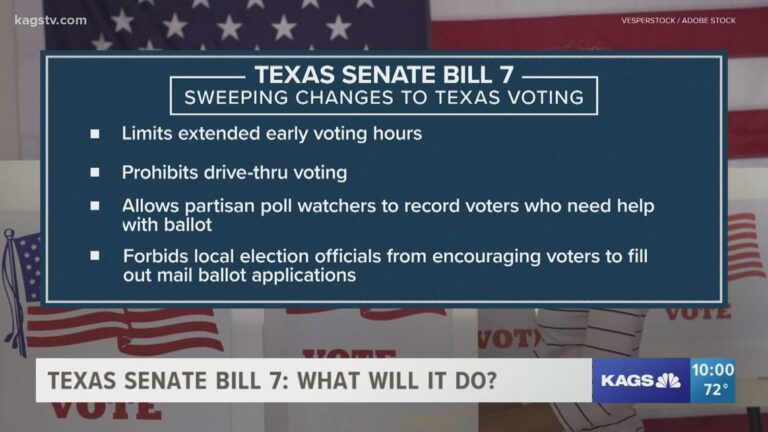Texas Legislature Moves to Limit Harris Countyãs Authority Over Surplus Toll Road Funds
The Texas Senate has recently passed a controversial bill designed to restrict Harris Countyãs management of excess toll road revenues. This legislation aims to curtail the countyãs discretion in how surplus funds generated from toll operations are allocated. Advocates for the bill emphasize that it will enhance fiscal transparency and ensure that toll revenues are primarily invested in transportation infrastructure rather than diverted to other uses.
Key elements of the bill include:
- Prohibiting Harris County from using surplus toll funds for projects unrelated to transportation infrastructure.
- Requiring state-level approval and oversight of any expenditure plans involving excess toll revenues.
- Implementing strict guidelines to prevent the reallocation of funds away from roads, highways, and transit systems.
| Group | Stance | Consequences |
|---|---|---|
| Harris County Leadership | Opposed | Loss of financial autonomy |
| State Lawmakers | In Favor | Improved fiscal governance |
| Transportation Advocates | Supportive | Focused infrastructure investment |
How the Legislation Could Reshape Harris Countyãs Infrastructure Funding and Budget
By limiting Harris Countyãs ability to allocate surplus toll revenues, this bill could substantially reshape the countyãs infrastructure development landscape. Previously, excess toll funds were used flexibly to support a variety of transportation projects, including public transit expansions and roadway enhancements. Under the new restrictions, these funds must be channeled strictly into designated transportation-related initiatives, potentially stalling broader efforts to address traffic congestion and infrastructure maintenance.
Potential budgetary shifts include:
- Decreased funding availability for non-toll-related infrastructure projects.
- Greater reliance on county general funds to support transit and road upkeep.
- Possible postponements or scaling back of long-term capital improvement plans.
| Funding Category | Allocation Before Bill | Expected Changes After Bill |
|---|---|---|
| Toll Road Upkeep | 60% | Maintained |
| Public Transit Development | 25% | Markedly Reduced |
| Road Safety Enhancements | 15% | Likely Decreased |
Local Leaders and Advocacy Groups React to Stateãs Increased Oversight
County officials have voiced strong opposition, arguing that the bill diminishes Harris Countyãs capacity to manage its financial resources in a way that best serves local priorities. Several commissioners highlighted that surplus toll revenues have been critical in funding projects aimed at reducing congestion and enhancing road safety. ãThis legislation removes the flexibility we need to respond to our communityãs evolving transportation demands,ã stated a county commissioner during a recent briefing. Concerns were also raised about the precedent this sets for future state intervention in local fiscal matters.
Advocacy organizations are split in their opinions. Some applaud the bill for promoting greater state-level accountability and transparency in the use of public funds. Conversely, many community groups and urban planners warn that restricting local control could delay essential infrastructure projects that directly affect Houston-area commuters. A coalition of transportation experts released a statement underscoring the importance of local governance in infrastructure planning, cautioning that ãtransferring authority away from Harris County risks slowing down critical improvements that impact daily travel.ã
- Supportersã Perspective: Strengthen statewide fiscal responsibility.
- Opponentsã Perspective: Preserve local decision-making and project timelines.
- Common Ground: Demand for transparency in fund management.
Expert Insights on Harmonizing State Oversight with Local Autonomy
Policy experts stress the importance of striking a balance between necessary state oversight and maintaining county-level autonomy to ensure surplus toll revenues are used effectively. While state involvement can provide essential checks and balancesãespecially when large sums are involvedãit should not hinder local officialsã ability to tailor investments to their communityãs specific needs. Transparency and cooperation between state and county authorities are vital to managing public funds responsibly while respecting jurisdictional boundaries.
Experts commonly recommend establishing clear, mutually agreed-upon guidelines for fund allocation, alongside mechanisms for shared accountability. This approach helps prevent misuse of funds while empowering counties to pursue projects that foster local economic growth and improve quality of life. Below is a summary of best practices suggested by analysts for navigating these governance challenges:
- Clear Allocation Standards: Define explicit criteria for how funds should be used and reported.
- Collaborative Oversight Bodies: Form joint committees with representatives from both state and county levels to supervise expenditures.
- Routine Financial Audits: Conduct regular reviews to ensure compliance and fiscal discipline.
- Community Engagement: Incorporate public feedback to align spending with local priorities.
| Governance Aspect | State Responsibilities | County Responsibilities |
|---|---|---|
| Oversight | Monitor finances and enforce regulations | Implement projects and make local decisions |
| Transparency | Set public reporting requirements | Provide regular spending disclosures |
| Flexibility | Define limits to prevent fund misuse | Adjust fund use based on community needs |
Looking Ahead: The Future of Toll Revenue Management in Harris County
The Texas Senateãs approval of legislation to restrict Harris Countyãs control over surplus toll road funds signals a pivotal change in how local transportation finances are governed. Proponents maintain that the bill will foster improved oversight and equitable fund distribution across the state. Meanwhile, opponents caution that it could hamper the countyãs ability to respond swiftly to local infrastructure demands. As the bill proceeds to the Texas House, ongoing debates will likely focus on balancing state authority with local autonomy. The final outcome will significantly influence the trajectory of toll road funding and infrastructure development in one of the fastest-growing metropolitan regions in the United States.

